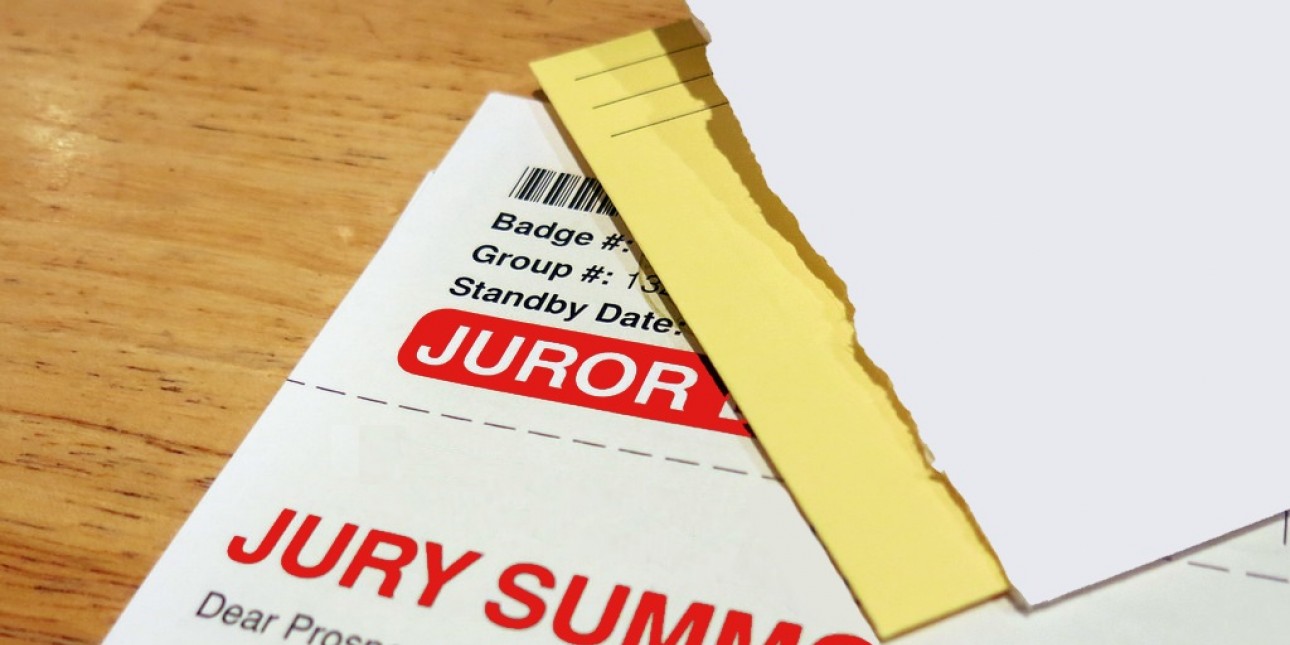Jury System & Proposed Reforms

The jury system must be preserved if our American justice system is to thrive. The whole notion of a jury – a group of randomly selected citizen decision makers – is a reflection of our communal trust in democracy. It embodies our historic reluctance to centralize power in any one source. The jury is a symbol of America.
Without dedicated jurors, our justice system would grind to a halt. Jurors are as important to the workings of justice as lawyers and judges. As such, we have an obligation to serve when summoned. Yet, the courts and all involved in the litigation process have a corresponding obligation to make it as easy as possible for citizens to serve.
How the Jury System Works
The Constitution of the United States and the Constitution of the Commonwealth of Pennsylvania guarantee citizens the right of trial by jury.
Citizens are randomly selected for jury duty from a statewide jury list that includes names of residents who vote, pay taxes, drive a car, or receive welfare benefits. The statewide list was created in 2010 to bring more potential jurors into the jury pool. Each year, thousands of Pennsylvanians are called for jury services.
For more information on specific jury procedures for each county, contact your district court administrator.
Jury Reforms
Serving on a jury is both an obligation and a privilege of citizenship. PMC supports endeavors to increase the number of citizens participating in jury services and to improve the quality of the jury service experience.
Litigants often note that the racial or sciooeconmic compositions of juries are not reflective of their communities or of the parties to the case. Similarly, members of particular interest groups, such as business entities or doctors' associations believe that they do not face juries of their peers. Studies, including the Report of the Pennsylvania Supreme Court's Committee of Racial and Gender Bias in the Justice System, corroborate the under-representation of various segments of the community in many jury pools. The only way to remedy these problems is to ensure all citizens an opportunity to serve and to convince them to avail themselves of that opportunity.
In addition, the Jury Service Committees of the Interbranch Commission on Gender, Racial and Ethnic Fairness and the Commission for Justice Initiatives have been focusing on developing the best practices related to jury selection. In response to a request from former Chief Justice Ralph Cappy, the Committees under the direction of former PMC Executive Director, Lynn Marks, have prepared a comprehensive report recommending a standardized process that will improve juror turnout, enhance the juror experience, and increase jury diversity. Click here to read the report.
Juror Compensation and Other Changes to Make Services More Convenient
PMC is working to advance other proposals that aim to ensure that all citizens have an opportunity to service, such as:
- Legislation increasing the fees paid to jurors for their services
- Legislation requiring employers of a certain size to pay their employees their regular wages for the time spend on jury duty
- County efforts to minimize costs to jurors by providing reduced parking, daycare, and reimbursing transportation
- Increasing juror compensation so that more citizens will find it easier to serve, insuring that jury pools reflect the diversity of the communities from which they are drawn.
Reforms in Other States
The American Bar Association's Commission on the American Jury Project remains active in promoting jury service and educating the public about jury duty. In addition, states throughout the nation are working to improve their own jury systems. Here are some highlights.
- Texas increased its juror compensation from $6 for the first day and $40 per day thereafter;
- Arizona and Illinois are considering adopting (or in Arizona amending) a lengthy trial fund that will pay greater compensation for jurors serving on unusually long trials;
- Indiana passed legislation eliminating automatic exemptions from jury duty and protecting employees or jury duty from adverse reactions of employers; and
- California implemented standard plain language jury instructions from criminal trials.